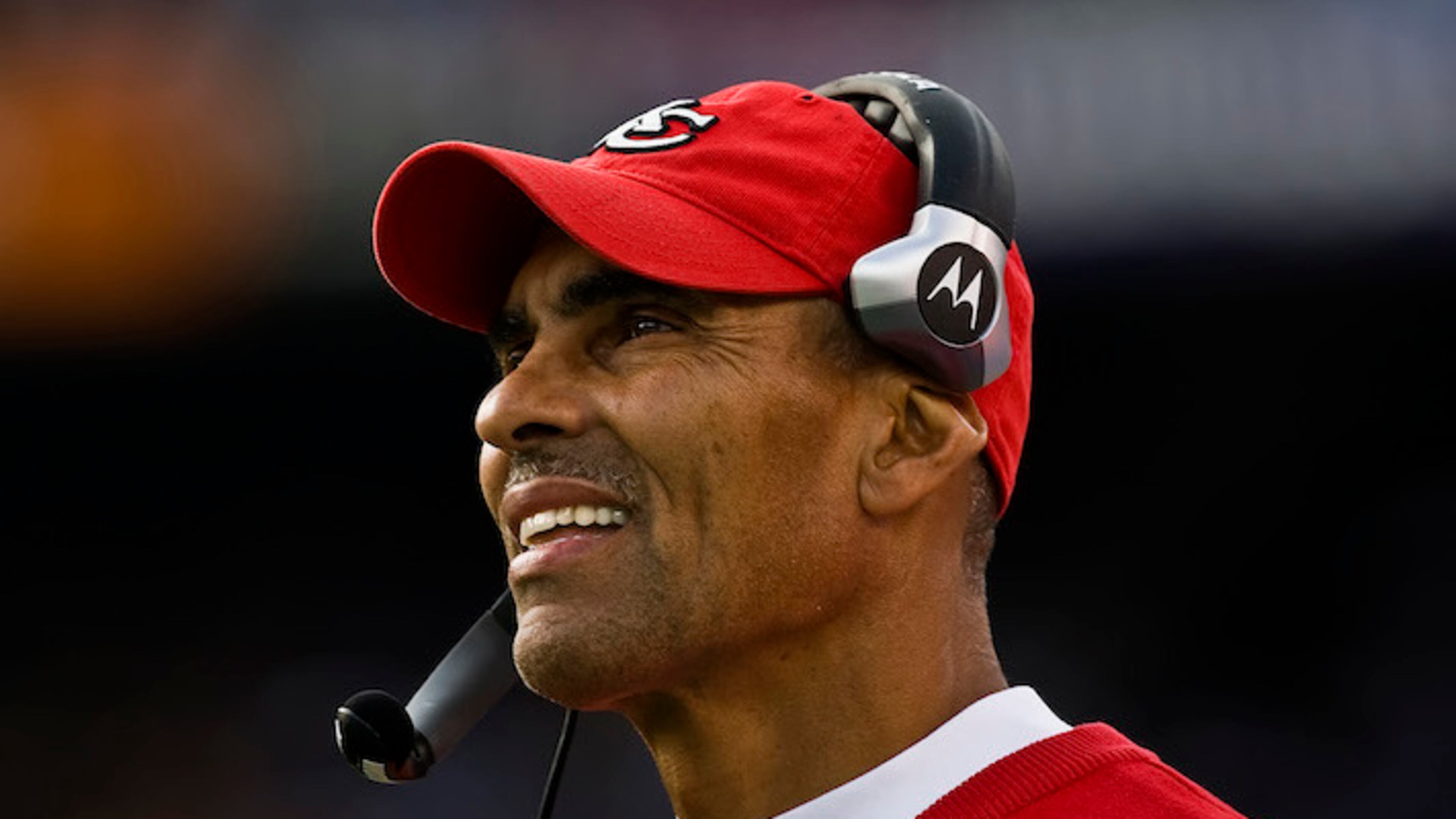Arizona State's Herm Edwards returns to coaching with renewed passion

It was a question Herm Edwards would get asked over and over again.
"Coach, when you coming back?"
It's a question Edwards had no answer for at the time, but one the continued to echo throughout conversations during the past decade.
"Coach, when you coming back?"
Edwards finally answered the question on Dec. 3 when he accepted the job as coach at Arizona State.
"I've had opportunities to go back but this was one that I really couldn't shake," said Edwards, who was originally recruited by Hall of Fame coach Frank Kush at Arizona State before choosing to play football at Cal and later San Diego State. "It's been what I anticipated. I knew what I was walking into, so it wasn't a surprise so much."
At an age when most men would consider slowing down, Edwards, 63, has become energized by the thought of returning to the sidelines as a full-time coach.
"I missed this," Edwards recalled thinking on his first day on the job at ASU.
One of his first orders of business was meeting with his new team.
"I was so excited I was trying to figure out what am I going to say," Edwards said.
He had worked out that moment over and over again in his head, taking plenty of notes, but when it came time to speak, Edwards remembered back to his first day as the coach with the New York Jets and instead chose to go in a different direction.
"Just go be you," he remembered thinking in 2001, ditching his prepared remarks. "And that's what I did. I walked in front of those kids and I said, 'OK, here's the deal.' And they were all sitting there with their eyes wide open. They're thinking, 'This is our coach. The guy who's been on television.' "
Edwards' journey back to football follows a similar blueprint laid out by good friend and mentor Dick Vermeil.
"I kind of went down his road," Edwards said. "He stayed out for 13 years and came back. And I was one of the guys who called him and said, 'Coach, you've got to go back!' "
Vermeil eventually returned to lead the St. Louis Rams to a Super Bowl in 2000 before re-retiring in 2005.
Edwards retired from coaching in 2008 before moving into a role as an analyst for ESPN. His outspoken personality made him a popular figure on the network.
Edwards inherits a program that has undergone a tremendous transformation thanks to a $268 million stadium renovation that includes state-of-the-art training facilities as well as upgrades to Camp Tontozona, where the team holds spring workouts.
On the field, however, Arizona State isn't nearly as polished.
After back-to-back 10-win seasons in 2013 and 2014, the Sun Devils slid backward to a seven-win season in 2017. It's been more than a decade since the program last won a conference championship, back when the league was still the Pac-10.
The Edwards hire didn't happen without some pushback.
Critics lashed out, pointing to his lack of college coaching credentials. It's been more than a decade since Edwards last roamed the sidelines as a full-time head coach when he was with the Jets.
There was also concern over his age, while others suggested his longtime friendship with current Arizona State athletics director Ray Anderson was the only reason he got the job.
Through it all, Edwards said he's not surprised by the negative reactions.
"I mean, you're going to get some positive, some negative, but that's the world we live in," he said. "I never let anyone set my expectations, I set my own expectations.
"I do know this: I would never attempt to even come back if I wouldn't be all in."
Edwards wants the Sun Devils to be a competitive enough program in the Pac-12 to be constantly mentioned among leaders Stanford and USC. He believes to do so, the program needs a culture change, something he sees happening starting with the 21 prospects the school signed in its 2018 recruiting class.
And he expects his players to work toward accomplishing their goals for the upcoming season, so much so he promised recruits' parents that he would have their sons write those goals down on paper.
"I'm going to make him meet those expectations," he said of each recruit. "I'm not going to allow him to cheat his talent."

